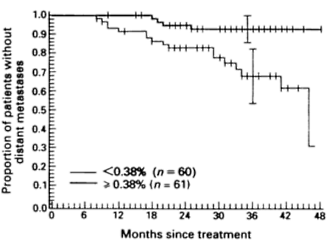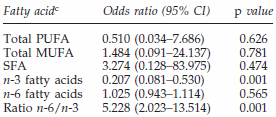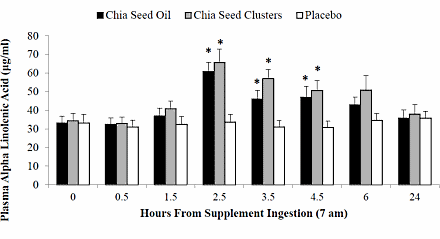|
Definition: "An ergogenic aid is any substance or phenomenon that enhances performance "
|
|
||||||||
07.01.2018 |
|
|
Alpha-linolenic acid, the broad-spectrum breast cancer cell slayer
Alpha-linolenic acid & cancer
But despite this, some research results are pretty good. Take the French study, that oncologists at the university of Tours, published in 1994 in the British Journal of Cancer. [Br J Cancer. 1994 August; 70(2): 330-4.] In that study, the researchers determined the amount of alpha-linolenic acid in the breast tissue in 121 women with non-metastasized breast cancer.
The researchers then divided the women into two equally large groups: one with relatively little alpha-linolenic acid in their breast tissue, and one with a relatively large amount of alpha-linolenic acid.
When the researchers followed the women for two-and-a-half years, they saw that in the women with a lot of alpha-linolenic acid in their tissues, the tumor metastasized in about 10 percent of the women. In the other group this was the case with a significantly higher percentage.
Because much more studies with such promising results have been published, research into the cancer-inhibiting effect of alpha-linolenic acid continues.
Study
The concentrations that Wiggings used were pretty high. The fatty acids of the membranes of her cancer cells consisted for a few dozen percent out of alpha-linolenic acid. You will not reach such levels in in vivo models.
Results
Alpha-linolenic acid caused the cell types to kill themselves, Wiggins discovered. The more alpha-linolenic acid was present in the cell membranes of the cancer cells, the greater the percentage of the cells that died [apoptosis].
Conclusion
"This research also shows that alpha-linolenic acid is particularly effective at reducing growth of basal/triple negative breast cancer, which currently has poor prognosis and few treatment options."
"Alpha-linolenic acid may provide a safe, cost effective treatment option for patients not only with basal breast cancer, but with a wide range of breast tumor receptor expression profiles."
"This work provides insight into some potential mechanisms of alpha-linolenic acid effect, showing that alpha-linolenic acid effectively incorporates into cell phospholipids and induces apoptosis, however further investigation is needed to determine exact mechanisms and determine why alpha-linolenic acid is more effective at reducing growth in basal breast cancer cell lines."
More:
Archives:
|
|
||||||||||||||||







